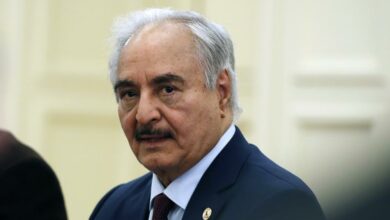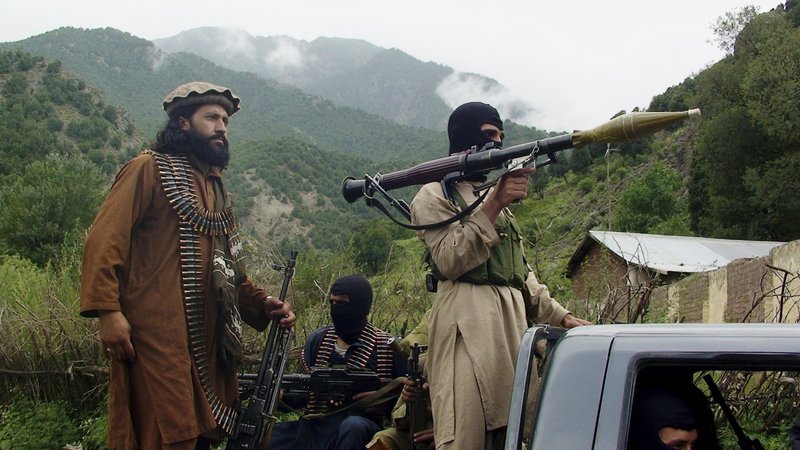The Salafi Front, one of Egypt’s most revolutionary Islamist movements, has established a new political party: Al-Sha’ab, or the People’s Party. While not particularly groundbreaking in light of Egypt’s current political fluidity, the group’s mix of policies emphasizing social justice with a strict Islamist frame of reference is intriguing.
“Our discourse aims to create a new reality within the Islamist project,” Khaled Saeed, spokesperson for the Salafi Front, tells Egypt Independent.
Saeed says the principles of social justice are not exclusive to certain political groups, adding that Islam is an inclusive religion which allows for policies favoring all social groups.
“Our Prophet [Mohamed] was the prophet of the poor and marginalized. It is our role to promote their struggles and concerns, especially farmers and workers, by adopting legislation that establishes real social justice — not only through charity like the rest of the Islamist movements,” Saeed says.
Egypt’s Islamist movements are often criticized for having right-leaning policies, and the economic program of the Muslim Brotherhood’s Freedom and Justice Party in particular has often been likened to that of former President Hosni Mubarak’s National Democratic Party.
In dealing with the poorer segments of society, Islamist groups and their associated political parties are perceived to focus on charity work and providing services to residents of impoverished areas, while leaving the broader struggle for reforming economic policies to reflect more socially just principles to leftist forces.
Experts argue that the emergence of an ultra-conservative Salafi party promoting social justice will have a ripple effect on the country’s dynamic political scene, particularly the Islamist groups within it.
The Salafi Front comprises young Salafi activists who defected from the mainstream Salafi Dawah following the 25 January revolution. Its members had participated in protests demanding an end to transitional military rule.
“This party represents the far right of Egypt’s political spectrum,” political analyst Fouad Gehad says, referring to issues concerning citizenship, human rights and minority issues, especially women and Copts.
At the same time, “it shares the same economic views as socialists — the dichotomy here is extremely contradictory,” he adds.
While it is too early to label the party’s economic policies as specifically socialist, mainly since it is still finalizing the details of its program, it has articulated some populist economic views, including legislation for a minimum and maximum wage and ending the practice of putting workers in state-owned entities on temporary contracts.
Party policies
The party’s platform outlines mechanisms to improve working conditions by limiting working hours per day and modifying the leave system to make sure workers have proper breaks, time to pray and sufficient annual vacations.
The People’s Party says it aims to preserve the right to strike by prohibiting the state from issuing laws against it, while allowing for the free formation of independent labor unions and preventing the state from dissolving them.
The party supports specific legislation that would improve working conditions for women, including prohibiting terminating female workers’ employment for being unable to meet work requirements for reasons related to pregnancy, along with modifying working hours to cater to women’s obligations toward their home and children. They also call for a safe working environment free of sexual harassment.
A proposed child law would prohibit child labor until the age of 15, while restricting their work in jobs that may threaten their health, morals or right to education.
For farmers, the party calls for subsidizing needed resources for agricultural activities, such as pesticides, fertilizers and seeds, to avoid any possible monopoly over them. The party would give priority to poor farmers to own land which the state allocates for reclamation projects, with a range of at least five and up to 10 acres per farmer.
Founders of the party say it will also advocate for issues facing citizens of the Sinai and Nubia, which Saeed describes as Egypt’s “chronic wounds” often overlooked by Islamist groups.
“These issues are vital to Egypt’s national sovereignty. People of Sinai and Nubia are socially marginalized [and] we are aiming to develop legislation to integrate them into the [national] social fabric,” he said.
A pillar of the party’s policy demands national independence by ending what Saeed calls a decades-long “inclination to the West” while promoting genuine economic and political sovereignty of Egypt’s foreign policy.
He stressed the need to amend the Camp David Accords with Israel, a contentious foreign policy shift with regard to Egypt’s longtime ally, which presidential spokesperson Yasser Ali recently affirmed would not be necessary.
The Salafi Front is staunchly against the guardianship of international economic organizations, he says, promising to lobby for cancelling all economic policies that commit Egypt to programs unfavorable to the poor, citing the International Monetary Fund loan as a chief example.
Egypt officially requested a US$4.8 billion loan from the IMF last August, after more than a year of back and forth negotiations between the two sides on a $3.2 billion loan. Dwindling foreign reserves and a widening budget deficit have led Egypt to request foreign funding and increase its domestic borrowing.
The IMF loan is argued to be a way to combat the funding crisis, but critics are wary of the conditions the loan carries and say there are alternatives to be utilized from within the local economy. Critics of the Brotherhood denounced the government’s decision, as the ruling Freedom and Justice Party previously rejected the loan, which they considered a form of usury prohibited by Sharia.
But President Mohamed Morsy said in a speech early October that the IMF loan is not usury while Yasser Borhamy, vice president of the Salafi Dawah — the mother organization of the Salafi Nour Party — issued a fatwa of the same nature. Both were criticized by political forces who described the major Islamist groups as peddling double standards.
Many of the issues the party is promising to adopt and the accompanying rhetoric give an aura of populist inclination, and experts say it is quite unique to see a hardline Islamist party toeing this line.
Ahmed Zaghloul, an expert in Islamist movements, describes the Salafi Front as having shocking and outspoken revolutionary views. It was one of the few Islamist movements that took a strong anti-military stance during the rule of the military council, he says, unlike the Brotherhood and Nour Party which were significantly more lenient.
“We only blame the Brotherhood and Nour for leaving the revolutionary scene and playing politics too early. The revolution needed them at some very critical times,” Saeed says. While he discounts the widely-held notion that the Muslim Brotherhood brokered a power deal with the military, he says the Brotherhood trusted the military too much.
Along with these revolutionary views, the Salafi Front is stringent about implementing Sharia.
Gehad says the People’s Party would tend to agree with Islamist parties and groups when it comes to implementing Sharia and other identity-related issues, which may widen the current polarization between Islamist and secular forces.
However, “their inclination toward social justice will ally them with some secular forces, especially the leftists inside the upcoming Parliament,” he adds. “I’m very optimistic that their support to social justice will be stronger, and we will see less polarization.”
The Salafi Front’s loyalty to their electoral base among the poor would see them focus on the needs of marginalized communities, where issues of poverty and social justice are more pressing than identity politics, says Gehad.
A movement like the Brotherhood, experts say, struggles to strike a balance between its right-leaning economic policies on the one hand, and its strong grassroots base within impoverished sectors of society on the other. They often confront this dichotomy by offering social and charitable services to the poor.
“Class-based ideological differences in a country like Egypt will definitely be stronger than identity-based polarization only if social justice issues are truly addressed … which I totally trust the new party, as well as other parties, will stress in the upcoming Parliament,” Gehad says. “Religious and identity polarization are not benefiting anyone.”
The discourse of the new party is also distinctive in its proposed relationship between the party’s politicians and the Front’s sheikhs. As other Islamist groups battle between reformist politicians and conservative religious leaders — the current rift within the Nour Party being one example — the Salafi Front takes another approach.
Saeed believes in the complete separation between the Salafi Front and its new party, with the former continuing its charitable activities.
“Our project is the project of a huge current, not a project of an organization,” Saeed says, adding that although the Front highly respects its sheikhs and their role, the founders of the new party will work to balance this relationship.
“We will seek the fatwa of religious leaders like all Muslims, but we will not wait for their blessing and they will not be our frame of reference. Sharia is the frame of reference,” he says.




